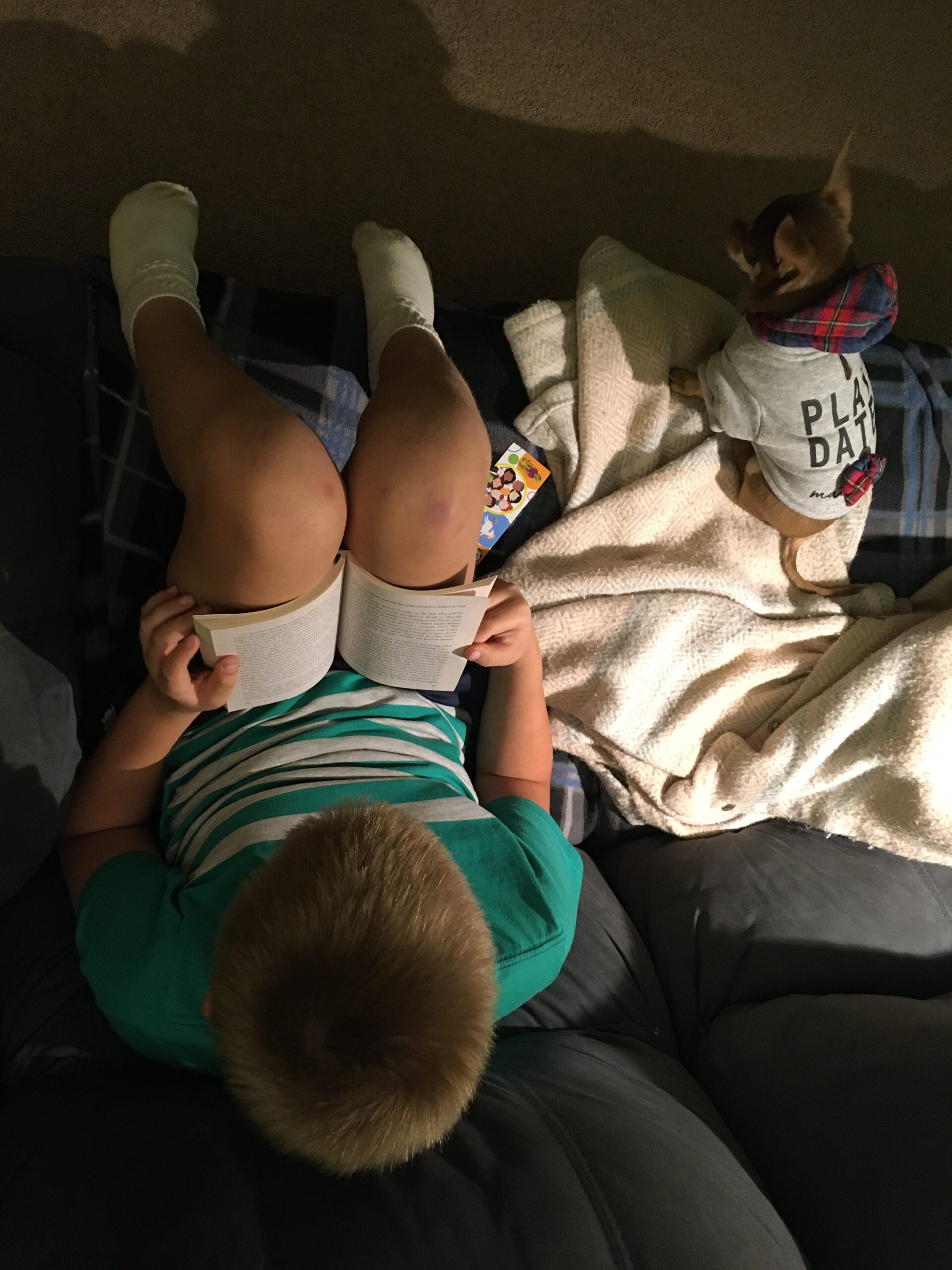The short answer: pretty much anything.
Parents can and should monitor content but not the delivery system.
Your kid likes to read novels? Great! Graphic novels? Great! Magazines? Great! Encyclopedias? Great! Audiobooks? Great!
I don’t think it matters.
It’s critically important for babies and young children to be read to. While I haven’t been good about it since he’s become an independent reader, I’ve been advised that reading to kids up to 12 years old or older is still beneficial.
There are definitely words and sentence structures and difficulty levels that we need to encounter and master to be “fully functional” in life. (Though how many of us can read the terms and conditions and have solid comprehension of them? What does “fully functional” as an adult reader actually mean?)
That’s what school is for. To teach the words and the sentence structures. To spiral up the difficulty level, ideally as kids are ready. (“Ideally as they’re ready” isn’t how school actually works most of the time in the United State, but that’s a completely separate topic.)
When people of any age are choosing what to read in their free time, I don’t think shaming them for their choices is wise.
People pick up different books for different reasons at different times in their lives.
Regardless of what/when/why, if you want people—including your kids—to read, let them read what they’re interested in reading.
Why not?
We can argue the academic benefits of reading things that aren’t “real books,” but I’m so tired of trying to justify everything for academic gains. My former field of music education is littered with how music helps with other subjects and I don’t have patience for it any more.
We can play music for music’s sake, and we can read for reading’s sake.
Why can’t we read just because this book looks interesting and reading it is how I want to spend my time?
As an adult, this is how I choose books to read—books that look interesting and reading them is how I want to spend my time. Sometimes I choose them to further my development on a topic and sometimes I choose them to be entertained and some I’m just curious about and some I’m rereading and some I end up liking and some I end up not liking and they’re all valid and who cares?
I feel like we should grant the same leeway to kids. Reading is reading.
Taking a moment to comment on audiobooks…
I’ve been asked if listening to an audiobook “counts” as reading the book. I think we first need to answer: what’s the point of consuming the book? Is it to be able to have a conversation about the book? Is it to pass time? Is it to learn something? Is it to practice reading skills?
Most of the time, listening to an audiobook is just as valid as reading the paper or electronic version. (Reading along with the audiobook is helpful for people struggling with reading—you can change the speed of the voice to more closely match what you need—but I consider this academic work and not leisure reading.)
We have been so drilled with needing to read “the right things” that many of these other vehicles for consuming content are overlooked. Graphic novels are great. Audiobooks are great. Embrace them. You don’t have to read them if you don’t want, but “only certain books are worth reading” was a lie.
